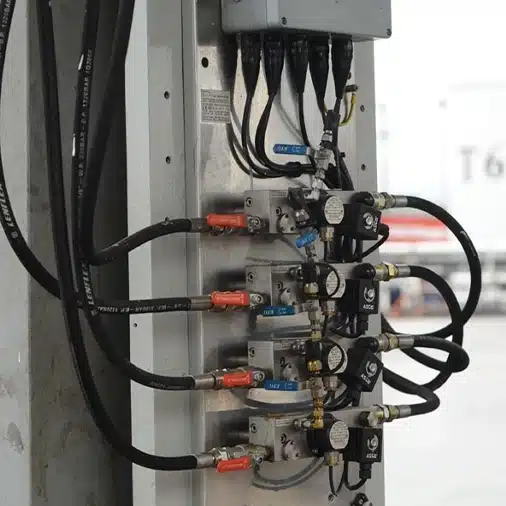Injection systems are critical in modern fuel and additive technologies. These systems are also used in ethanol and biodiesel blending applications, providing solutions that meet industry standards.
Injection systems are particularly important for increasing the use of renewable energy sources, thereby reducing the carbon footprint. These systems are often preferred for their environmental benefits. With their precision operation, these systems also promote transparency in the energy sector.
The components of injection systems include:
What Are Injection Systems?
Injection systems are systems that ensure fuels and additives are mixed in the correct proportions and delivered to engines or energy systems at the right time. Generally used in motor vehicles and energy production, these systems aim to distribute fuel homogeneously and ensure efficient combustion.
Additive injection systems play a crucial role in enhancing fuel performance. These systems are significant for mixing chemical additives like motor cleaners, protective agents, and emission-reducing chemicals with fuel. Their main features include:
What does injection do? Injection systems inject the fuel required by the engine in the correct amount and at the appropriate pressure, optimizing the combustion process. They ensure the homogeneous distribution of fuel, enabling smooth and efficient engine operation.

Moreover, these systems support the use of eco-friendly fuels blended with fossil fuels. Through this, systems used in the blending of bioethanol and biodiesel ensure renewable resources can be seamlessly utilized in engines.
Blending systems are technologies that allow different types of fuels and additives to be mixed homogeneously. These systems blend bioethanol, biodiesel, and performance-enhancing additives with fuel in a compatible manner, thereby increasing engine performance and reducing emission levels.
Blending systems make fuel mixtures compliant with national standards, contributing to sustainable energy use. This allows for the production of fuels that are compatible with modern engine technologies, eco-friendly, and high-performance.
What Are Fuel Injection Systems?
Fuel injection systems are systems used in refineries, tankers, and fuel terminals to mix fuels with biodiesel, bioethanol, and performance additives in the correct proportions. These systems ensure that the fuel is delivered at a specific pressure and with precise injection timing.
Used in modern engines, these systems work compatibly with both conventional fossil fuels and renewable energy sources.
Playing a crucial role in energy efficiency and sustainability, these systems support the efficient use of fuel through continuous monitoring and automatic adjustment features.
Fuel injection systems provide homogeneous fuel distribution, aiming to deliver fuel equally to the cylinders. They help the engine operate at maximum efficiency and achieve high performance.
They enable the seamless use of renewable fuels such as biodiesel and bioethanol. Additionally, they save fuel by preventing excessive fuel consumption.
For detailed information on injection systems and fuel injection systems, you can contact Mega Industry.
